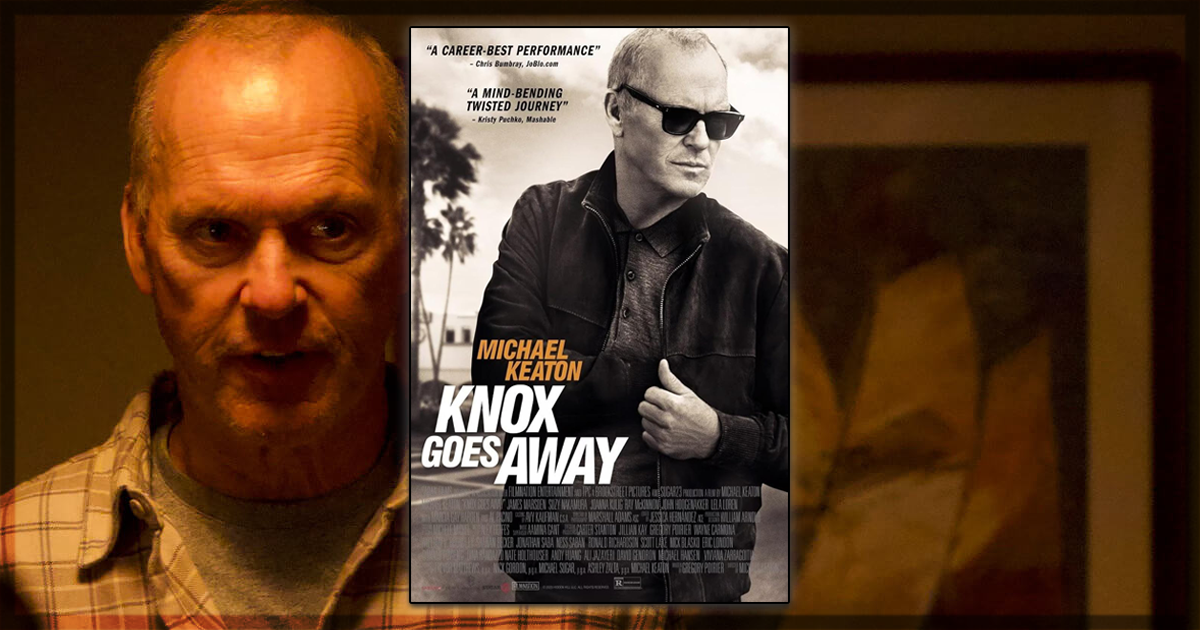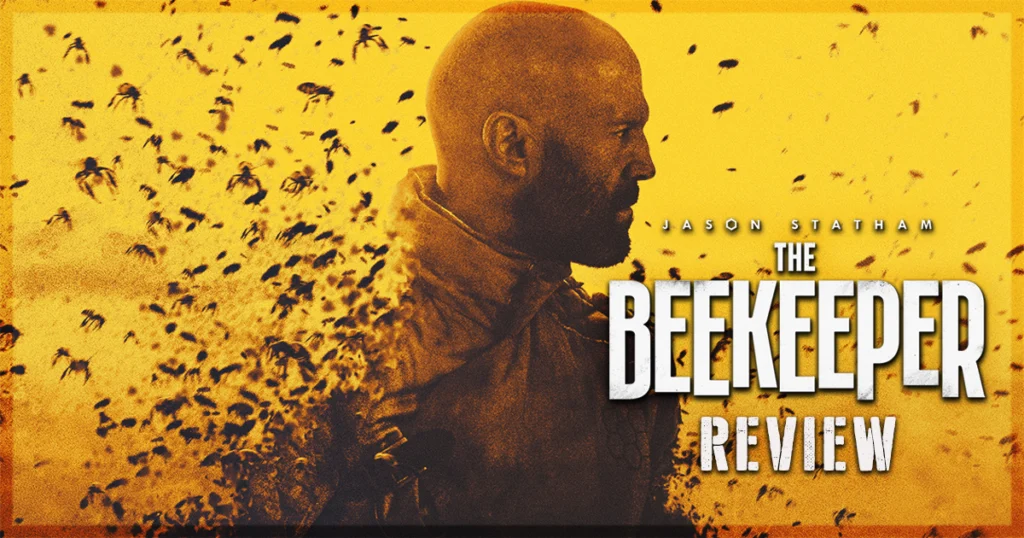Michael Keaton has been considered one of the generation’s best (and most popular) actors. Besides his oozing on-screen charisma, he is arguably one of the most likable people in Hollywood. This includes his starring roles in iconic films including but not limited to Batman, Batman Returns, and Beetlejuice. Those films made him a household name that is easily recognized by millions. With a career far from over, Keaton is dipping his toe into another part of the industry. After 16 years, Michael Keaton returns to the director’s chair with Knox Goes Away. It’s his first foray into directing since the 2008 film The Merry Gentleman.
The story of Knox Goes Away
Keaton’s second directorial effort is delving into the genre of crime dramas. Knox Goes Away follows John Knox (Keaton) as an efficient and deadly contract killer. Knox’s life and career are turned upside down when he’s diagnosed with a rapid form of dementia. His estranged son Miles (James Marsden) arrives at his door desperate for help as Knox begins to put his affairs in order. This gives Knox an opportunity to redeem himself before he, as he says throughout the film, “goes away.” What follows offers mixed results, with some fascinating pieces.
The aging hitman looking to tie up loose ends can be considered an archetypal story. Characters of that ilk have been in films for generations, and that familiarity forces these stories to try to stand out. Unfortunately, that makes the arc of Knox’s journey easy to guess. Written by Gregory Poirier (Rosewood, The Spy Next Door), the script relishes in the cliches. Those cliches mainly involve the setup regarding Knox’s final shot at his redemption. Besides Knox, every supporting character feels entirely unoriginal.
The actors have no room to play in this crime-noir movie
Actors like Al Pacino, James Marsden, and Marcia Gay Harden are given little to work with besides the character’s archetypes. This limited depth can also be blamed on Michael Keaton’s direction, giving his actors no room to play. That is due to Knox Goes Away strictly wanting to pay homage to the crime-noir genre. Keaton seems to clearly understand the narrative beats viewers expect. He delivers those effectively, such as the violence befalling the characters. The problem involves his inability to differentiate those moments from hundreds of other crime dramas.
Numerous twists in the film attempt to earn an emotional response from viewers. It is not the actor’s fault that these moments feel inauthentic. As delivered, such moments feel like items getting checked off a list. This idea rings especially true when Miles (Marsden) asks Knox for help. Marsden is not bad in the role, but his motivations remain simplistic throughout. He simply made a mistake and returned to his estranged father for help. That sort of characterization is a standard practice in these kinds of stories. To deliver that effectively, there needs to be more to the characters. Miles has none of those added emotional depths to make his return to Knox’s life dramatic. He simply goes to him and doesn’t care about reconnecting.
Knox Goes Away is sorely lacking dramatic tension
That is a significant problem for one rather important reason. Viewers must understand why Knox cares about these supporting players in his story. That can only be accomplished by those characters having worthwhile motivation. Unfortunately, it’s hard to connect with their motives via the writing’s simplicity. It makes much of the dramatic tension feel sorely lacking throughout. Without viewers caring about those around our protagonist, why should they care about the outcome? Thankfully, a saving grace is on display, which keeps the film from being a complete misfire.
Keaton’s performance stands out in Knox Goes Away
Michael Keaton’s lead performance belongs in a much better movie. Before Knox’s diagnosis, he gives an air of confidence on-screen. He’s good at his job and understands the rules of his trade. Once things go wrong, it forces Knox to put his skills to the test in his race against the clock. Keaton’s calm and composed demeanor helps make the character consistently compelling. That is due to his fighting two different battles within the film, keeping him motivated to get out of the situation. Both of Knox’s conflicts come with their own type of risks and rewards. The first involves Knox seeing a chance to reconcile with his estranged son.
This motivation gives the characters a calm exterior and a genuine sense of warmth. It’s an impressive bit of characterization that provides the character with needed depth. The look in Keaton’s eyes alone gives off an impressive emotional sensibility. Audiences see how deeply Knox cares about righting his past wrongs. It’s a saving grace for the film, allowing us to become emotionally invested in the story. The second motivation involves Knox’s understanding that his time is limited. That gives the film an impressive “race against the clock” sensation via Keaton’s performance.
Knox knows that his time is almost up throughout the story. As his dementia rapidly grows, his skills become weaker. That forces Keaton to convey an entirely different look in his eyes. Instead of that warmth and heart, a blankness begins to take over due to his illness. In these moments, Keaton delivers a compelling feeling of concern that translates off-screen. We begin to fear the worst of what this illness will do to him. It gives the film the needed tension with an impressive subtlety. Watching Knox’s attempts to juggle these obstacles helps keep the movie from being a complete misfire. It provides the story with a needed personality that carries the film to the end of its running time.
Knox Goes Away cannot be called a downright disaster. Instead, it is an exciting prospect that has great pieces but delivers middling results. The bland screenplay and direction keep the film in a conventional rhythm. This includes supporting performances that add no dimensionality to the proceedings. Michael Keaton’s performance gives the story a needed personality and a sense of excitement. Crime-noir completionists will get precisely what they want from Knox Goes Away. The genre’s trappings are delivered in a conventional and somewhat effective fashion. It’s the lead performance that helps give the story a personality. The finished result provides a film that will work better for some than others.
Knox Goes Away is now in theaters.
Are you interested in Knox Goes Away? Let us know by connecting with us on X @MoviesWeTexted.
You might also like…
Review: ‘The Beekeeper’ is a throwback to 90s action movie fun
‘Land of Bad’ Interview with Writer and Director William Eubank



